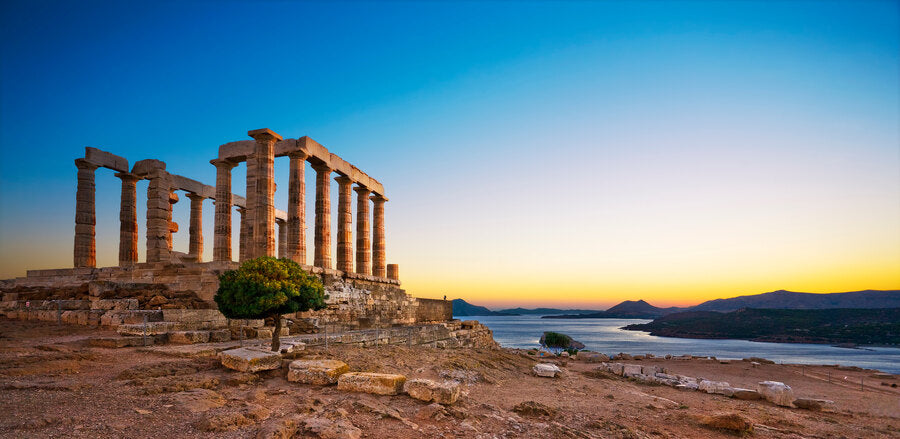For dedicated runners, there are few races like the Marathon. A marathon can draw thrill seekers looking to push themselves for a one-and-done to cross off their bucket list, and it draws seasoned and beginner runners from all over. But have you ever wondered what the first or earliest known Marathon was like? How the years, experiences, and technological advances have changed the Marathon since it began?
Those of us passionate about our running, whether it is a hobby or a lifestyle, we are often intrigued about how it all began. Today, we'd love to sit down and share how marathon runs have changed since they began.
The Legend of Pheidippideas
According to ancient accounts, the legend of the very first marathon runner belongs to Pheidippides. As the myth is told, roughly over 2,500 years ago, in the city of Marathon, Pheidippides witnessed one of the most significant wars of the classic world. The Persian Empire, under Darius I, deployed a Persian fleet of ships to Greece.
Ships manned by 18,000 to 25,000 arrived on the shore of the Bay of Marathon. The Athenian army numbered over 10,000 and was ready to defend their home with their lives; their invaders outnumbered them. The Athenians needed to call upon reinforcements from Sparta, but Sparta was incredibly far away from Marathon.
In ancient Greece, communication technology was primitive. One of the primary means to carry news and messages from one place to another was using a herald, also known as a hemerodrome—essentially on-foot couriers that carried messages. Pheidippides was a herald and, according to some versions of his myth, was tasked to run from Marathon to Sparta, a distance of 153 miles over dangerous terrain and at least one sizeable mountain. Meaning he would have to run to Sparta and back.
Other versions of this myth, however, tell that after the surprising victory of the Athenians pushing back and defeating the Persian army, Peidippides ran from the battle site in Marathon to the Acropolis in Athens to deliver the news of their victory. Upon arriving at the Acropolis, after running roughly 40 kilometers or 25 miles, it is said that Pheidippides uttered the words, "Hail, we are the winners," or "Joy, we are the winners," wherein he immediately collapsed and passed away after.
Many claims that the story of Pheidippides was first mentioned in the writing of Herodotus, who purportedly lived in the same period. Other sources say this is not an accurate claim, as Pheidippides is mentioned, nothing is written about the Marathon-to-Athens run.
According to Wikipedia, it wasn't until 500 years after Heroductus that the writer Plutarch first mentioned the account of any of the first marathon runs—yet it is Thersippus or Eukles credited, instead. A century later, another writer named Lucian credited the Marathon herald as Philippides.
In all likelihood, the story of Pheidippides was probably more fable than fact.
The First Marathon
Surprisingly, the first Marathon was not held during the ancient Olympic games in Greece between 776 BCE to 393 AD, as they did not include any foot races as long as the Marathon. The longest race mentioned during this time was roughly 5 kilometers or 3.1 miles.
Inspired by a famous 1879 poem by Robert Browning about Pheidippides that became popular then, Baron Pierre de Coubertin had the idea of resurrecting the Marathon and incorporating it into the revival of the Olympics. De Coubertin believed that sport made people more robust and built national character; looking at Britain and Prussia's military successes, he noted that Britain strongly emphasized sporting endeavors within public schools. De Coubertin set out to make sports mandatory within French schools and create an international sporting event resembling the ancient Olympics.
In 1894, he formed an International Olympic Committee, where delegates agreed to create and establish the first modern Olympics in Athens two years later, with repeated events every four years.
A delegate on the committee and a history expert, Michel Bréal, had read about the legend of Pheidippideas and championed the idea of having a long-distance run. He wrote a letter to Coubertin in 1894 asking if a long-distance run could be organized, and if so, he would personally sponsor the marathon trophy.
The Greek government was in favor of the Olympic Games as well as the marathon race. Accordingly, the first Olympic Marathon was a 40 km run from Marathon Bridge to the new stadium in Athens. 11 competitors ran in the foot race from Marathon to Athens, completing the first Marathon.
How the Marathon Began Changing
- The first Marathon outside the Olympics was the Boston Marathon, which had its first running in 1897, one year after the Olympics. However, at that time, women were not allowed to compete.
- In 1921, the modern 42.195 or 26.219-mile standard distance was officially set by the International Amateur Athletic Federation (IAAF) directly from the 1908 Summer Olympics in London.
- A jogging boom during the 1960s and 1970s ignited an explosion of marathon events, including the New York City Marathon
- 75 years later, in 1972, women were officially allowed to enter the Boston Marathon.
- 12 years later, the first Olympic Marathon for women was held.
- Marathon running has become more commercialized over the years. Its inclusion has seen thousands of additions worldwide outside of the Olympics, offering more runners commercial opportunities as much as other athletics.
- Despite COVID-cancellations and postponements, marathons continue to be viral throughout the U.S. and the world. There are many great reasons to run a marathon, from challenging yourself, committing to the training, mentally bolstering yourself, improving health, raising awareness and money for a charity, or reaching a goal.
A marathon is a considerable undertaking; it's never easy, no matter what level of runner you may be. Still, training is one of those incredible experiences in life where you can do something you never thought you could or do something challenging and celebrate sticking with it.
We hope you've enjoyed our fascinating look at marathons and how they have changed since they began.







Leave a comment
This site is protected by hCaptcha and the hCaptcha Privacy Policy and Terms of Service apply.